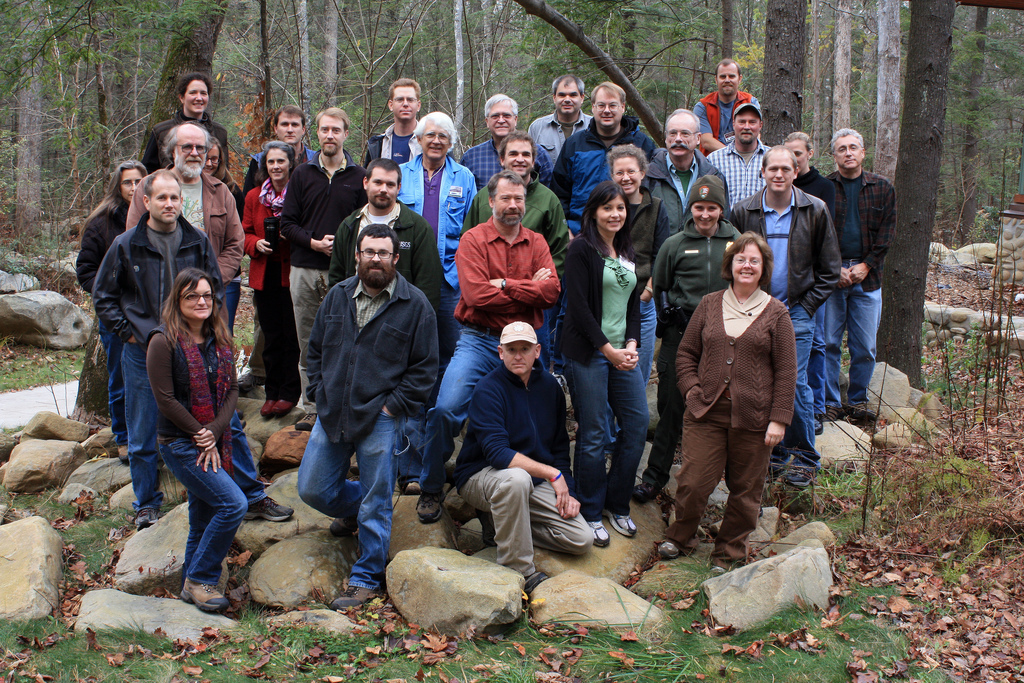The Amphibian Research and Monitoring Program (ARMI) celebrates 10 years!
The ARMI Program has been on the leading edge of monitoring and amphibian research since its inception in 2000. The ten USGS scientists who function as “Regional Principal Investigators” are responsible for monitoring and conducting amphibian research on Department of Interior lands across the seven ARMI Regions. The ARMI program is an example of a multi-disciplinary partnership, and we have a pathologist and several hydrologists who partner with the scientists on monitoring and research.
ARMI is dedicated to developing the next generation of managers and researchers, and has supported the Declining Amphibian Task Force’s seed grant program for several years. The Regional PIs work with technicians, college students and post-docs on projects that give the newer biologists opportunities to stretch their technical skills. ARMI has directly or indirectly supported 24 graduate students, resulting in 14 Ph.D. dissertations and 10 Master’s theses at universities across the country.
ARMI scientists have identified novel diseases, studied the effects of agricultural practices, forest management, invasive species, livestock grazing, and wildfires on the survival of individuals and species richness; predicted possible outcomes of climate change and diagnosed mass mortality events to name only a few of our research activities. ARMI has worked with partners across academia and State and Federal agencies to develop and evaluate management and conservation actions for amphibians. As a result of these projects, ARMI scientists have produced more than 375 publications, including several books, multiple book chapters, and peer reviewed articles in at least 74 different scientific journals.
ARMI looks forward to the next decade of innovative research and exciting collaborations.

